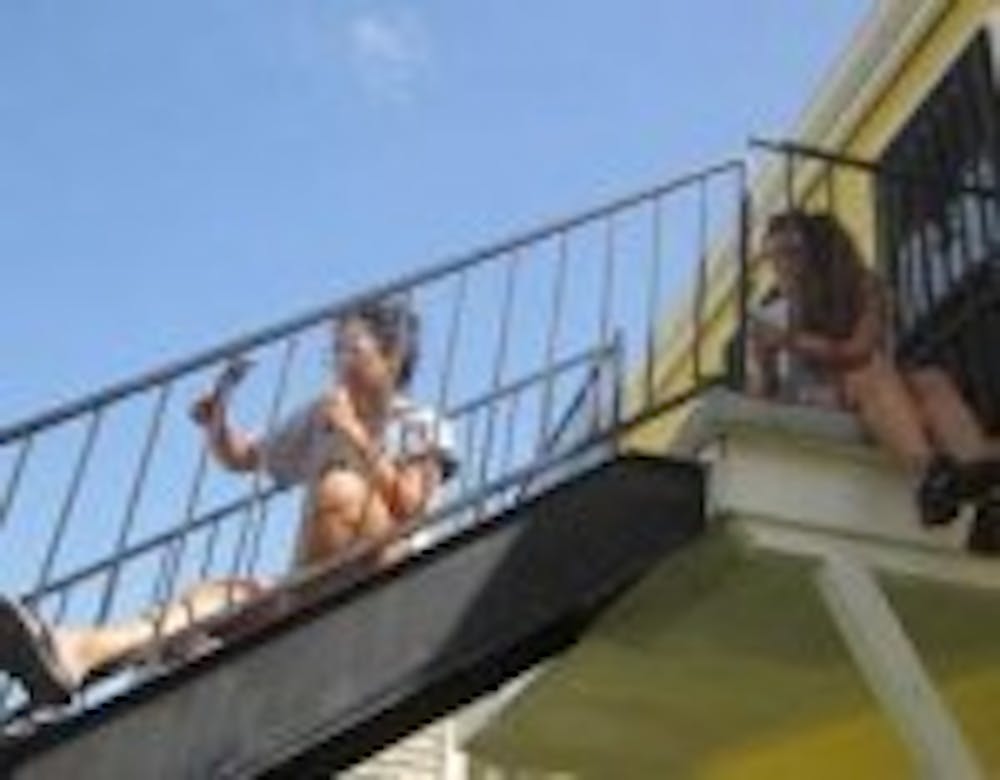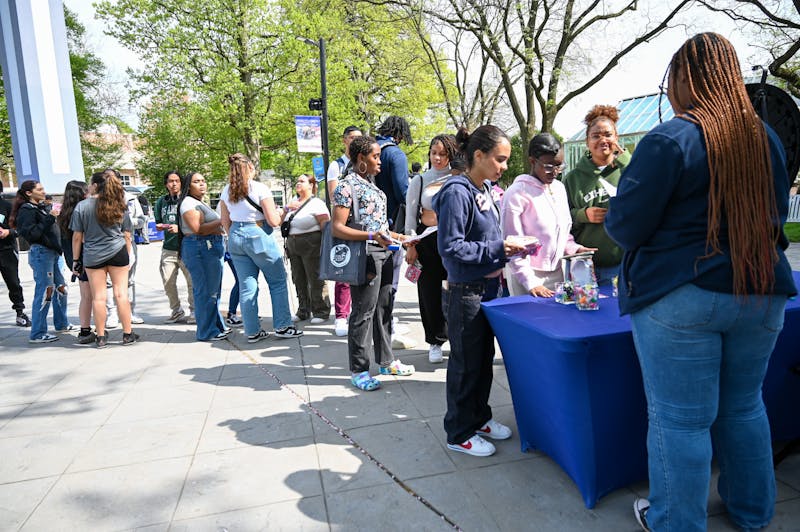In response to the Gulf of Mexico's recent devastating impairment, a direct result of the now infamous, history-making BP oil spill, one Kean University professor and seven students crossed state lines to take action. On the morning of July 26, 2010, Dr. Norma Bowe proudly rested herself next to the seven assembled students, who having joined hands for an embarking picturesque moment, photo-documented the first of many community-building moments that would occur throughout the week-long journey. Together, these members of Be the Change, a community service group fashioned by Dr. Bowe, took to the road in search for active humanitarianism. The students, sophomore theater major, Rebecca Bowe; junior chemistry major, Mario Da Costa; senior communications major, Kayla Duncan; senior biology major, Elissa Hyer; senior psychology major, Nicolette Maggio; alumni student Alexandra Bastos; and an accompanying The Cougar's Byte student-correspondent, all based their involvement loosely on the hopeful expectation that the trip to the Gulf would bring the opportunity to help wildlife and the communities affected by the spill. Though research for the journey had been conducted and networking destinations noted, the actual course was nothing that could be planned for. For some of the student leaders, intuition of the trip's nomadic nature swept in early. "I had an open mind going on this trip. I didn't know what specifically to expect," said Maggio. "I've always wanted to do something like this, but was never given the opportunity. When I found out about it, I knew how much I would learn, and also in turn, how much I could give. I was signed up in my mind before my pen hit the paper."
The first official stop set the tone for the South-bound expedition. Though the known destinations of the group were Alabama and Louisiana, the group collectively decided that a visit to the memorial site at Virginia Polytechnic Institute and State University (Virginia Tech) would be an opportunity greatly missed if passed. When they arrived, a self-conducted tour led them to a place on the campus the entire group agreed was a fated destination for them.
Virginia Tech's Norris Hall, a place having just less than four years ago experience great loss during the student shootings of April 16, 2007, is now home to the new Center for Peace Studies and Violence Prevention - a student-centered facility fostering cross-disciplinary research, education, and development of leadership opportunities. Here, the Be the Change group met with the missioners of that ambition, including the director of the center, Dr. Jerzy Nowak, professor of horticulture at Virginia Tech. Nowak, having experienced personal, familial loss during the shootings, felt a need to transform the space into something of hope. Nowak expressed his healing grief to the group. "I sometimes come [to the center] on weak knees." During the visit to the semi-circle of 32 engraved Hokie Stones, each one designated to a lost member of the Virginia Tech family, Rebecca Bowe gravitated towards a stone bench engraved with the word "Survivors". As she lay there, she described the experience as one which air was hard to breathe, and a sense of appreciation for life would soon follow.
The group soon after arrived at their original destination, The Alabama Coastal Foundation in Mobile, Alabama. Though prospective volunteer opportunities were available just three weeks prior to the actual departure date, the group learned volunteer service was now limited to pre-authorized contribution. The group needed a new direction, a new course of action. It was here the group explored both the streets of a city that had clearly taken a hit to its economy, and the minds of those faithful residents that still called the city their home.
Though the origins of their intended community service had been jeopardized, the group adopted a new ambition - touch hearts and learn the stories masked beneath the news media of the spill. For the group, a blinded journey did not mean defeat. Appropriately, The Alabama Coastal Foundation sponsors an artist who, due to two optical injuries, had become fully blind. The artist, having passion and drive for his profession, continues to paint even today.
One original plan set prior to the departure that remained intact was the volunteer opportunity to join Louisiana's non-profit organization, The United-Saints Recovery Project, in an effort to aid in Hurricane Katrina recovery work. The group was paired with a senior citizen's home that received no state funding after the hurricane devastation. Through the hot summer hours, Dr. Bowe and the seven students worked heavily to restore the home. There, residents of the home greeted the group with smiles, gifts, and sincere gratitude. Though the group may have helped the elder residents, the group in turn expressed how much the residents helped them.
"I felt the true actions of community service [here]," stated Da Costa. "It almost felt instinct to me, not because it was one of the main goals of our venture here, but because it NEEDED to be done. My body switched gears from being tired to being full of energy and eager to aid in any possible way- that's the true spirit of community service."
For Duncan, it was the group's next and last destination that marked true community service. During the return home, skillful mapping and intuition by Dr. Bowe and Duncan lead to a beach in Mississippi. Here, the group came face to face with the original element that sparked the already incredible journey: oil. Hundreds of decomposed jellyfish lay washed-ashore next to small clumps of coagulated oil. A group of fully geared men worked at the cleanup. Duncan, mastering the elements of her communication degree, took quickly to the workers to hear their voices.
"Questioning cleanup crews subcontracted by BP on the beaches of Pass Christian Mississippi felt like true community service to me. I say this because I was probing and digging for information regarding the workers current health conditions, the state of the water and their perceived effectiveness of the cleanup efforts," expressed Duncan.
That Mississippi beach visit landed the group in yet another opportunity to help the community around them. A local park, not too far off from the beach, was occupied by almost a dozen young children who ran through sprinklers to cool off from the heat. The beaches were no longer a safe place for them. The Be the Change group knew that even the smallest contribution of time and heart, would mean the world to these children. The journey ended with shared smiles between young Mississippi locals and the kind strangers who wore t-shirts with that funny word: Kean.
The Be the Change group has already orchestrated a returning trip to Louisiana for more Katrina recovery work and is already positioned to attend Virginia Tech's Peace Conference as panel presenters in November. The pursuit of true, impactful community service remains the primary effort of the group.
Be The Change Journeys South
Kean group seeks community service without borders






